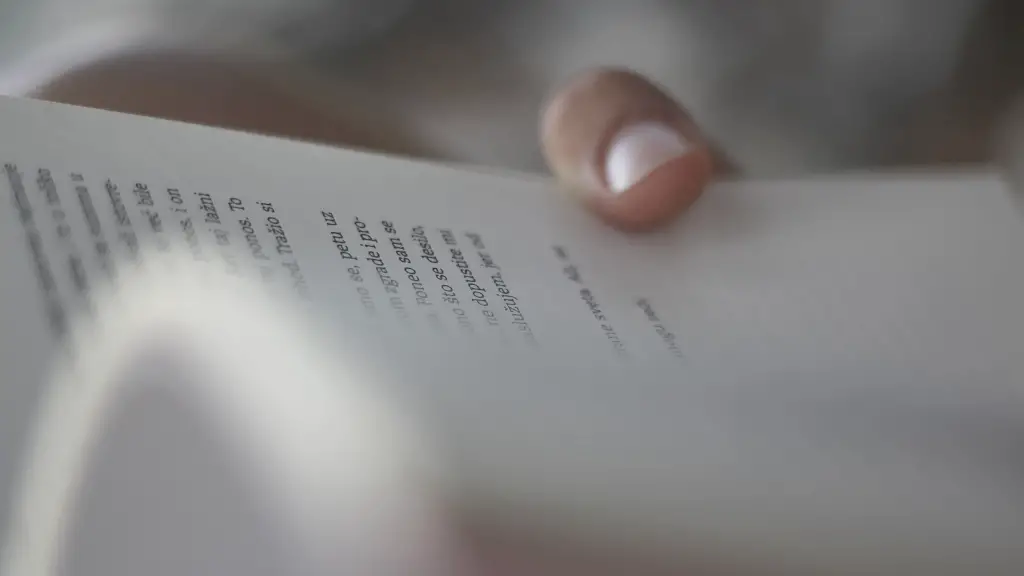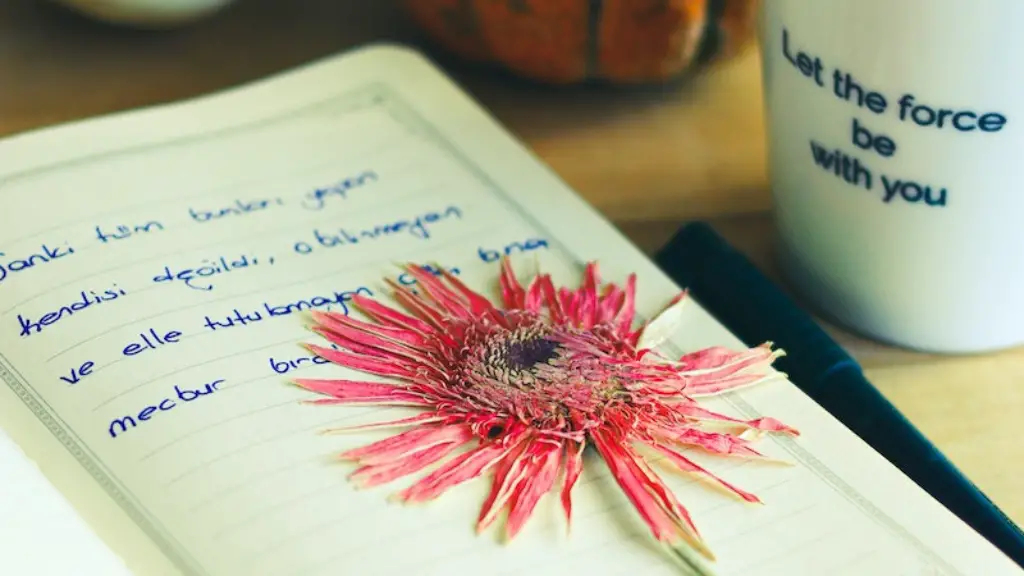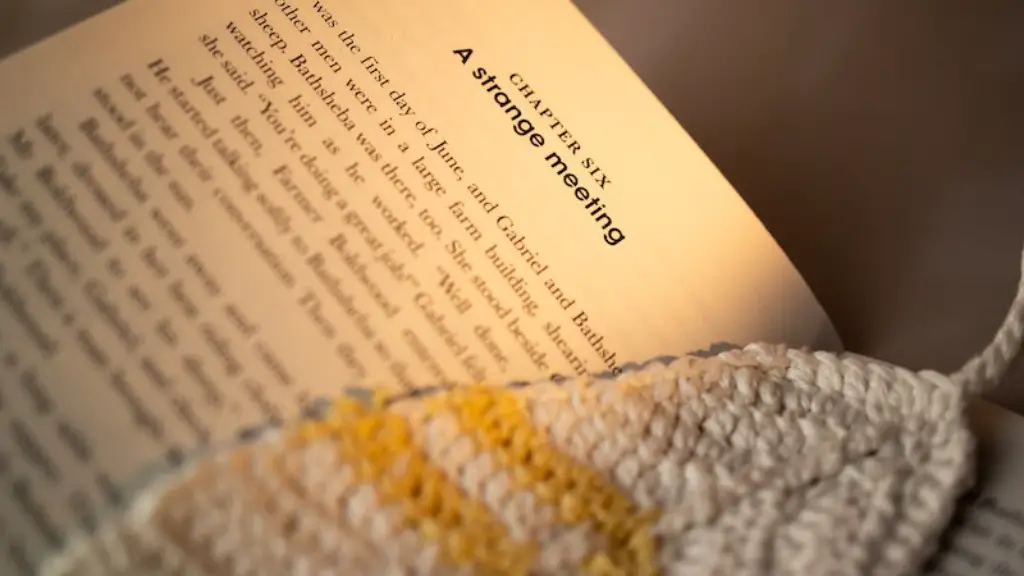What is poetry? It is the delicate art of expressing emotions and feelings in a beautiful and poignant way. Poetry is a powerful tool for those wishing to make their message heard and it can be used to convey a range of messages, from deep and meaningful reflections on life to humorous and light-hearted observations. With its ability to rouse emotions, bring clarity, explore new meaning and so much more, poetry should not be overlooked as merely a means of literature.
One of the major appeals of poetry lies in its living nature. Throughout time and across cultures, poetry has provided an ever-changing landscape of new techniques and styles, allowing poets to explore different ways of expressing themselves and their ideas. From traditional poetic forms, such as sonnets and villanelles, to modern genres experimenting with tonal techniques and narratives, as well as everything in between, poetry is a living medium that is constantly evolving, still providing opportunities for discovery.
At its core, poetry offers a way to connect. It invites people to explore the depths of their innermost feelings and, in doing so, to connect with those around them and with the wider world. Poetry has the ability to capture and then immortalise emotions for the future, creating a powerful connection between the present and future generations. Through understanding each other’s poetic expressions, we can gain insight into other cultures, beliefs, and experiences and create a more cohesive and understanding society.
Poetry also offers a way to express emotion. From an emotional release to a quiet contemplation, poetry can provide solace, comfort, and understanding in difficult times. Poets can use this powerful tool to express their deepest feelings, whether that be love and compassion, or grief and anger. The emotional power of poetry to legitimise feelings and experiences gives readers the space to reflect upon their own feelings, articulate them, and come to terms with emotions that may otherwise be difficult to express.
Poetry can also be viewed as a therapeutic tool. Reading and writing poetry can be a way of understanding and exploring difficult topics, from mental health to trauma, from the human condition to suffering and resilience. In today’s world, poetry can provide an accepting space for many of the topics we struggle to openly discuss and gives people a safe container in which to express themselves.
Finally, poetry is also a creative challenge. Writing poetry requires skill, practice, and even a certain amount of bravery. Through experimenting with words and styling, poets can develop their craft and tap into a greater ability to evoke emotion, explore themes, and give readers a unique and enlightening literary experience. It is no wonder that, even in the digital age, poetry continues to be appreciated and enjoyed.
Forms of Poetry
Poetry comes in many different forms. Traditional poetic forms, such as sonnets and villanelles, have strict rules and structures and use rhyme and alliteration to create musical patterns in their verses. These poetic forms can be a great starting point for poets just getting into writing and can provide a platform for experimentation and play. More modern forms of poetry, such as free verse and flash fiction, often take a looser approach to form but still provide the same opportunities for exploration and expression.
The type of poem can also depend on its purpose and its intended audience. Poems can be written to be fun and entertaining, such as limericks and haikus, or can be more serious and contemplative, such as elegies or odes. Understanding the different forms of poetry can help poets find the right form to communicate their message.
Another way to categorise poetry is by era. From the traditional works of William Shakespeare, John Keats and Emily Dickinson to the experimental approaches of Maya Angelou and Sylvia Plath, poets have been writing in different styles and forms for centuries, creating an ever-evolving canon of works.
In the current day, there is a huge variety of digital poetry, such as podcasts and online installations, exploring the use of technology to bring poetry to new audiences. Forms of poetry, such as spoken word, are also gaining popularity and are often used as a way to address a range of social and political issues.
Writing Poetry
Writing poetry is a deeply personal experience and the approach can be vastly different between poets. In saying that, there are some tips that can help when starting out. Researching and reading the work of other poets can provide invaluable inspiration on how to craft poetry, as well as the types of content other poets are tackling. Additionally, it can be beneficial to start with a simple poetic form and gradually branch out as confidence grows.
It can also be helpful to choose a topic and make a plan. Brainstorm ideas and jot down any relevant observations or feelings you have on the topic. Once you have some ideas developed, it’s important to start writing down your poem so you have something to work with. You can then start editing and refining it, adding in literary devices such as rhyme and alliteration, as well as assessing whether the arrangement of the lines and the structure overall is suitable.
It is often beneficial to draw on everyday experience, such as an event or a moment, as these can often be more poignant when written from a perspective of personal experience. It is important to express how you are feeling rather than how you think you should be feeling and to write what feels true for you; this will bring a level of authenticity and honesty to your work.
It is also essential to give yourself permission to experiment with different forms and literary devices. Not every poem will be perfect, so it’s important to enjoy the process of exploring different styles and ways of expression to find the one that works for you.
Sharing Poetry
Sharing and receiving feedback on one’s work is key to any creative pursuit, including writing poetry. Many communities have online forums or groups dedicated to working on and discussing poetry; these can be an invaluable source of knowledge and constructive feedback. Some communities are general while others are more specific, and these can provide the perfect platform to get noticed and to build a following.
Sharing poetry can also be a great way to inspire other poets. Writing and then reading your poetry aloud is a powerful way to start a dialogue, so don’t be afraid to take the plunge and start reading your work to others. Of course, this can feel quite daunting so it’s important to approach it in a relaxed manner. Taking part in open mic nights and poetry slams is a great way to get your work noticed and to meet other poets.
Many online platforms, such as Instagram and Twitter, give people an opportunity to connect and share their work with a larger audience. For poets interested in getting published, there are numerous online publications and literary magazines to submit your work, such as The Moondance, The Good Men Project and The New Southern Fugitives.
The Benefits of Poetry
It is no secret that poetry has many benefits and it is no surprise that it is still widely appreciated, both today and throughout history. From connecting with the past to creating emotional connections in the present, poetry can provide a powerful tool for exploration and expression. As a living and evolving medium, poetry offers poets the platform to find their voice and to explore different ways of conveying their thoughts and feelings.
For readers, poetry is a way to connect with the emotional depths of experiences and to be inspired by stories and perspectives of those around them. As a creative pursuit, writing poetry can be a therapeutic experience and can provide a unique outlet for emotional release. Even just writing a few lines of poetry and reading it aloud can be an enlightening and affirming experience.
Final Reflection
Ultimately, poetry has been and continues to be a powerful medium through which people can connect to each other, while also exploring and articulating their innermost experiences. Poetry can be as deep or as light-hearted as needed and provides a platform to explore and experiment with different ideas. With its ability to bring comfort and clarity, poetry should be appreciated and recognised as much more than simply a form of literature.





